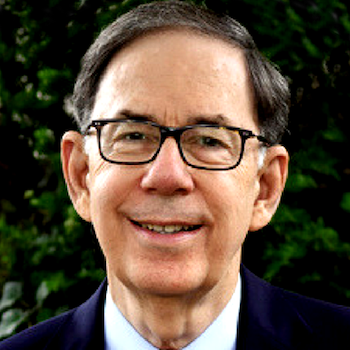Back to series

Recommended Reading:

The Priority Of Prayer
Click here to open a Print - Friendly PDF
|
A number of years ago, a well-known hamburger chain aired a TV commercial that focused on a simple question to favorably distinguish its product from all others on the market. The question was “Where’s the beef?” It was an extremely successful commercial, still remembered by many people. Those of us in the church need to ask a similar question today: Where’s the power? Where is the power we read about in the book of Acts and the early church? Where is the power that has propelled the church forward through the centuries against overwhelming resistance and opposition? Where is the power that distinguishes the followers of Jesus from those of Buddha, Muhammad, or Marx? If you were to answer, “in the Holy Spirit,” you would of course be right. He is the source of power for all Christian life, witness, and mission. But that doesn’t exhaust the answer. There is more. And that “more” lies in the area of prayer. For as surely as the Spirit lies behind the moving of God’s power, prayer lies behind the moving of the Spirit. Throughout the Bible, the powerful working of the Holy Spirit is closely related to prayer. When God’s people earnestly pray, the Spirit works with power and God’s kingdom advances. When they don’t, things seem to grind to a halt. Whether it be our personal lives or the ministry and mission of the church, earnest prayer is essential to the Spirit’s working in power.
Jesus demonstrated this in His own life and ministry. We are all familiar with how Jesus, in the power of the Holy Spirit, preached the gospel, fed the hungry, comforted the brokenhearted, healed the sick, cast out demons, gave sight to the blind, and raised the dead. But we sometimes overlook that these powerful deeds were the overflow of a life of prayer, lived in daily communion with God. The Gospels tell us that early in the morning while it was still dark, Jesus would rise and spend time alone with God in prayer (Mark 1:35). And often, even in busy periods of ministry, He would withdraw to solitary places and pray (Luke 5:16). At times He even spent whole nights in prayer (Luke 6:12). By making prayer such a high priority, Jesus was able to maintain constant communion with His Father and draw upon God’s wisdom, guidance, and power to fulfill His mission (John 5:19–20). The apostles demonstrate this same reliance on prayer. They were able to lead the church because they let nothing distract them from prayer. They understood what Jesus taught—and we seem to have forgotten—that God’s kingdom is advanced chiefly by prayer. And that leaders must first and foremost take counsel of God in prayer and draw upon His power. Therefore the apostles devoted themselves first to prayer and then to the ministry of the word (Acts 6:4), knowing that truth without power is as dead as faith without works.
When persecution threatened to overwhelm them, they led the church to cry out to God in prayer, and they “were all filled with the Holy Spirit and spoke the word of God boldly” (Acts 4:31). Later, when Peter was arrested by Herod and held for execution, the whole church united in prayer, and God sent an angel to break him out of jail (Acts 12:5–11). Through prayer God also guided the church in important decisions, such as opening her doors to the Gentiles (Acts 10) and sending out Barnabas and Paul to expand the church throughout the Roman world (Acts 13:1–3). At every significant juncture, it was by means of prayer that the apostles and the church drew upon God’s almighty power. This was a vital key to their survival and success. What was true of the original apostles and the Jerusalem church was also true of Paul and his churches. Paul, preeminently a man of prayer, interceded constantly for his churches and converts (Rom. 1:10; Eph. 1:16–17; Phil. 1:4; Col. 1:9; 1 Thess. 1:2; 2 Thess. 1:11; 2 Tim. 1:3) and urged them to devote themselves to prayer (Col. 4:2), to pray about everything (Phil. 4:6), and to “pray without ceasing” (1 Thess. 5:17 KJV). Often he sought their prayers for open doors and effective preaching in his ministry (Eph. 6:18–20; Col. 4:3–4; 2 Thess. 3:1–2). As a result, he was able to spread the church all over the Roman world. And as one looks down the corridors of church history since the days of the apostles, the story is the same. The kingdom of God moves forward through prayer. Those who have been most used of God in every generation have been men and women of prayer. And the movements that have had the greatest impact for Christ have been those based in prayer. The consistent pattern is that those who have honored the Lord by earnest, believing prayer have been honored by Him with ministry that advances the kingdom of the One they love and serve. Today we need to rediscover the power of prayer—earnest, prevailing prayer. In our educated, technological society, we find it natural to depend on our reason, education, abilities, training, and technology to do the work of God. As a result, we venture only as far as our rational headlights will shine and attempt only what our unaided strength can accomplish. It often seems that if we pray at all, it is to ask God to bless plans we have already made. Consequently we have little vision or power, and our efforts bear the mark of the human rather than the divine. Only a rediscovery of the power of prayer and the ministry of the Spirit can restore the fire of God to our lives and congregations and enable us once again to advance the kingdom of God. For those who would recover this power, the path is clear and the way sure. We enter it by consecrating our lives afresh to the living God and to the glory of His Son, Jesus Christ. And then, with the apostles, we earnestly ask, “Lord, teach us to pray,” then devote ourselves to praying (Acts 2:42; Col. 4:2). To those who walk this path, the possibilities are limited only by the limitations of God. And nothing is impossible with Him (Luke 1:37). |
|||
|
Notes: |
|||

Thomas A. Tarrants
Author, President Emeritus, CSLI Thomas A. Tarrants is President Emeritus of the C.S. Lewis Institute. After serving twelve years as president and nine years as vice President, he retired from his position as Vice President for Ministry and Director, Washington Area Fellows Program, with CSLI in June 2019. He holds a Master's of Divinity Degree, as well as a Doctor of Ministry Degree in Christian Spirituality. Tom is an ordained minister in the Evangelical Church Alliance and a member of the Evangelical Theological Society. He spends his time writing, mentoring, consulting and traveling. His life story is told in Consumed by Hate, Redeemed by Love, published by Thomas Nelson Publishers.Recommended Reading:
JJ.C. Ryle, A Call to Prayer (Banner of Truth, 2005)
J.C. Ryle (1816-1900) was well known for his warm, plain-spoken candor, the kind which appeals to all souls regardless of rank or title, and this booklet is no different. Bold, encouraging, and affectionate, A Call to Prayer is just as the title says—an earnest invitation for all children of God to come before Him in prayer. Read it, be edified, and have hope: you have access to the Maker of heaven and earth who can do all things.
 COPYRIGHT: This publication is published by C.S. Lewis Institute; 8001 Braddock Road, Suite 301; Springfield, VA 22151. Portions of the publication may be reproduced for noncommercial, local church or ministry use without prior permission. Electronic copies of the PDF files may be duplicated and transmitted via e-mail for personal and church use. Articles may not be modified without prior written permission of the Institute. For questions, contact the Institute: 703.914.5602 or email us.
COPYRIGHT: This publication is published by C.S. Lewis Institute; 8001 Braddock Road, Suite 301; Springfield, VA 22151. Portions of the publication may be reproduced for noncommercial, local church or ministry use without prior permission. Electronic copies of the PDF files may be duplicated and transmitted via e-mail for personal and church use. Articles may not be modified without prior written permission of the Institute. For questions, contact the Institute: 703.914.5602 or email us.
-
Recent Podcasts
Fix Your Eyes Upon Jesus
by Steven Garber, Aimee Riegert on June 27, 2025Perhaps the most prominent and current figure who...Read More
-
An Honest Search for God – Dr. Jay Medenwaldt’s Story
by Jana Harmon, Jay Medenwaldt on June 20, 2025
-
Moving Beyond Forgiveness to an Abundant Life
by Robert Saucy, Aimee Riegert on June 13, 2025
-
Recent Publications
Are Miracles Possible
by Christopher L. Reese on June 1, 2025The 21st century has provoked many conversations and...Read More
-
Is God Just, Not Fair?
by Jennifer Rothschild on May 15, 2025
-
Seeking Dietrich Bonhoeffer
by Joseph A. Kohm on April 29, 2025
0
All Booked
0.00
All Booked
0.00
All Booked
24720
The Adventure of Joining God in His Work Live Online Small Group 7:00 PM CT
https://www.cslewisinstitute.org/?event=the-adventure-of-joining-god-in-his-work-live-online-small-group-700-pm-ct&event_date=2025-09-16®=1
https://www.paypal.com/cgi-bin/webscr
2025-09-16

Next coming event
Days
Hours
Minutes
Seconds
The Adventure of Joining God in His Work Live Online Small Group 7:00 PM CT
On September 16, 2025 at 7:00 pmTags
Speakers

Thomas A. Tarrants
Author, President Emeritus, CSLI
Team Members



 Jesus teaches this very clearly in the Gospels. He tells us to pray, “Thy kingdom come. Thy will be done on earth as it is in heaven” (Matt. 6:10 KJV), and He bids us to “ask the Lord of the harvest … to send out workers into his harvest field” (Matt. 9:38).1 By this He means for us to understand and take seriously the fact that our prayer is a major factor in advancing God’s kingdom in this world. Jesus elsewhere encourages prayer in the strongest terms imaginable by saying, “Ask and it will be given to you; seek and you will find; knock and the door will be opened to you” (Matt. 7:7). “Have faith in God … whatever you ask for in prayer, believe that you have received it, and it will be yours” (Mark 11:22, 24). “If you believe, you will receive whatever you ask for in prayer” (Matt. 21:22). The clear implication of these and similar passages is that God commands us to pray and promises to answer in power when we do so.
Jesus teaches this very clearly in the Gospels. He tells us to pray, “Thy kingdom come. Thy will be done on earth as it is in heaven” (Matt. 6:10 KJV), and He bids us to “ask the Lord of the harvest … to send out workers into his harvest field” (Matt. 9:38).1 By this He means for us to understand and take seriously the fact that our prayer is a major factor in advancing God’s kingdom in this world. Jesus elsewhere encourages prayer in the strongest terms imaginable by saying, “Ask and it will be given to you; seek and you will find; knock and the door will be opened to you” (Matt. 7:7). “Have faith in God … whatever you ask for in prayer, believe that you have received it, and it will be yours” (Mark 11:22, 24). “If you believe, you will receive whatever you ask for in prayer” (Matt. 21:22). The clear implication of these and similar passages is that God commands us to pray and promises to answer in power when we do so. We see the outworking of this in the life of the early church. When Jesus ascended to heaven and left them on the Mount of Olives, the apostles returned to Jerusalem and with the other believers “joined together constantly in prayer” (Acts 1:14) to prepare for a mighty visitation of the Holy Spirit. When the Spirit came at Pentecost, three thousand were converted through a single sermon (Acts 2:41). Under their leadership, the new converts “devoted themselves to … prayer” (Acts 2:42), and the church grew rapidly.
We see the outworking of this in the life of the early church. When Jesus ascended to heaven and left them on the Mount of Olives, the apostles returned to Jerusalem and with the other believers “joined together constantly in prayer” (Acts 1:14) to prepare for a mighty visitation of the Holy Spirit. When the Spirit came at Pentecost, three thousand were converted through a single sermon (Acts 2:41). Under their leadership, the new converts “devoted themselves to … prayer” (Acts 2:42), and the church grew rapidly.



